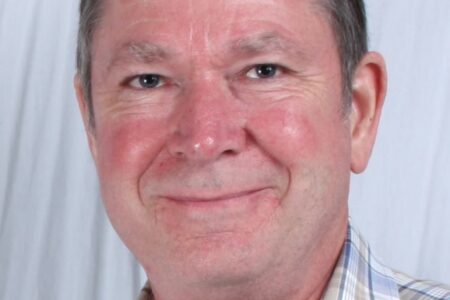COMMENT: Translating science
Even though I found it stultifying, the secondary school I attended was considered quite progressive, largely because students could elect in third year to stream their arts and science education into arts or science.
I couldn’t wait to free myself of math and science. I was fine with basic arithmetic, but when teachers started to trying to tell me that A over B equalled C minus D, my brain short circuited. As for science, in second year I had to switch from biology to physics, because dead frogs in formaldehyde made me vomit.
I wanted to be a writer – even if I hadn’t quite figured out how to make that happen. What possible use would I ever have for chemistry or biology or physics? (Decades later all I can remember of the latter is the law of inertia: A body in motion tends to stay in motion, a body at rest tends to stay at rest. True, that.)
So, off I went with my English and Art and History credentials, eventually landing a job in journalism. How was I to know that years later I’d end up working as a toxics campaigner? Oops.
Persistent. Bioaccumulative. PVC, PCBs, dioxins, furans, other organochlorines, the impact of their manufacture, use and disposal on fish, wildlife and humans. And then there was the emerging study of endocrine disrupting (also known as hormone mimicking) chemicals which alone – or in combination with other chemicals – can alter neural, physical and reproductive functions in all vertebrate species. Blimey. It turned out chemistry and biology might have been useful after all.
Fortunately I had some excellent tutors in my post-secondary science education: scientists like Devra Davis, Sam Epstein and Ana Soto, who were eager to share their findings and eager to find someone like me, capable of translating their work into non-scientific language easily understood by the public.
On one occasion I participated in a radio panel with Peter Myers, co-author of the ground-breaking book Our Stolen Future. Now Pete understood the KISS ( Keep It Simple, Stupid) principle, but this was complicated information and he couldn’t help employing scientific terms and reasoning. So, towards the end of the interview, to ensure the listeners really understood, I said: “Just to make sure I understand this. You’re saying there is every reason to believe that manmade chemicals released into the environment are making us sick, stupid and sterile.” Pete looked at me, grinned and confirmed that this was indeed the case.
After the interview, he told me: “I’ve been trying for years to figure out a way to explain the problem that’s so simple even congressmen can understand. Can I steal your line?” I told him he could, although he should credit my Greenpeace toxics colleague Charlie Cray for it.
Pete, along with other scientists I met, returned the favour, helping me understand the caution with which scientists speak. I learnt, for example, that no scientist will ever state anything with 100% certainty. Apparently it goes against the grain.
So, in very non-scientific terms, here are some translations.
When scientists say there is a “possible link” between, say, human activity and changes in global climate patterns, what they are saying is: “Hmm, this looks likely. We should do some more research.”
When scientists move on to a “probable link”, what they’re saying is: “Hey, guys, this is bad. You really should do something about it.”
And when scientists say (as those involved in the Intergovernmental Panel on Climate Change recently did) that they are 95% certain about the link between human activity and global warming, what they’re actually saying is: “Holy shit! Your house is on fire! Why the hell aren’t you calling the fire department?”
What scientists are not saying, as Canada’s new Environment Minister Leona Aglukkaq has suggested, is that the science is still debatable. Or as Natural Resources Minister Joe Oliver claimed earlier this year that the findings are exaggerated.
Now, it’s possible that, like me, both Ministers dropped science in school, so they just don’t get it. Still, despite the Harper government’s sacking and gagging operations, there must still be some government scientists left with whom the Ministers could confer. Perhaps they’ve lost their internal phone directories and don’t know how to contact Environment Canada.
Or perhaps they’re just looking to their future, assuming such a clear lack of curiosity about real answers to important questions will guarantee them a seat in the Senate.
Miranda Holmes is freelance writer and former toxics campaigner.



























Comments